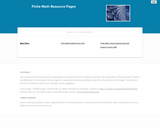
Mathematics
- Subject:
- Mathematics
- Material Type:
- Full Course
- Textbook
- Provider:
- Lumen Learning
- Provider Set:
- Candela Courseware
- Date Added:
- 07/07/2020

Mathematics
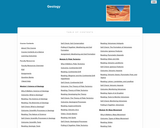
When you ask the question What is geology? most people will initially respond that it is the study of rocks. This is true, but geology is also so much more than that. The truth is that geology is an intricate part of your everyday life.
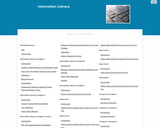
To be information literate, a person must be able to recognize when information is needed and have the ability to locate, evaluate, and use effectively the needed information. By the end of this unit you will be able to Define Information Literacy, Define the four domains that fall under Metaliterate Learners, Identify a lack of knowledge in a subject area, Identify a search topic/question and define it using simple terminology, Articulate current knowledge on a topic, Recognize a need for information and data to achieve a specific end and define limits to the information need, and Manage time effectively to complete a search.
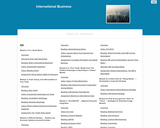
This course serves as an overview of business practices on a global scale, including a look at cultural, legal, and logistical perspectives.
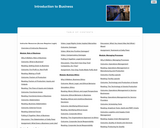
Business can refer to a particular organization such as WalMart or to an entire market sectorfor example, the music business. Compound forms such as agribusiness represent subsets of the words broader meaning, which encompasses all activity by suppliers of goods and services in the agricultural industry. Business can also refer to an individual who earns his or her income by working from home selling items through an online auction site like eBay. The concept of business has enough definitions and applications that we could almost say that everything is business. Throughout this course we will explore the various functions, roles, and characteristics of business while keeping in mind that business is like the air we breatheeverywhere!
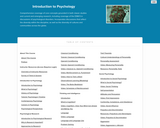
Comprehensive coverage of core concepts grounded in both classic studies and current and emerging research, including coverage of the DSM-5 in discussions of psychological disorders. Incorporates discussions that reflect the diversity within the discipline, as well as the diversity of cultures and communities across the globe.
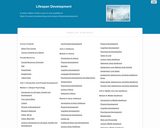
Welcome to the study of human growth and development, commonly referred to as the womb to tomb course because it is the story of our journeys from conception to death. Human development is the study of how we change over time. Although this course is offered in psychology, this is a very interdisciplinary course. Psychologists, nutritionists, sociologists, anthropologists, educators, and health care professionals all contribute to our knowledge of life span.
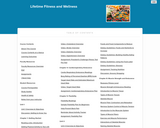
This course provides a study of fitness and wellness and their relationship to a healthy lifestyle. Defines fitness and wellness, evaluates the student's level of fitness and wellness, and motivates the student to incorporate physical fitness and wellness into daily living.
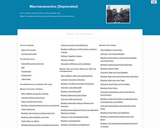
Macroeconomics provides an introduction to economic principles and market forces including supply and demand, unemployment, inflation, international trade and capital flows, monetary policy and banking, fiscal policy and globalization.
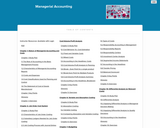
This course looks at the role of accounting in the management process, cost systems, capital investment, and more.
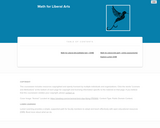
This course was originally developed for the Open Course Library project. The text used is Math in Society, edited by David Lippman, Pierce College Ft Steilacoom. Development of this book was supported, in part, by the Transition Math Project and the Open Course Library Project. Topics covered in the course include problem solving, voting theory, graph theory, growth models, finance, data collection and description, and probability.
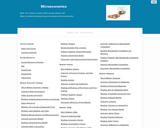
Microeconomics provides an introduction to economic principles and market forces including supply and demand, labor and financial markets, elasticity, consumer choices, cost and industry structure, competition, monopoly, negative and positive externalities, economic inequality, financial markets, international trade, globalization and protectionism.
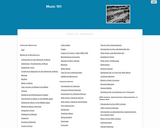
Welcome to Music 101. I think youve made a smart choice to spend some weeks studying some of the greatest music ever written. Consider for a moment how quickly a hit pop song passes from fashionable to forgotten. Those of us that have been out of high school or college more years than we care to remember have certainly had the experience of hearing a favorite anthem of our youth and thinking, Oh yeah, that song! Id forgotten that one. Think about that: the song was totally loved, then completely forgotten within a matter of just a few years. Then consider that many of the composers that we will study have been dead for over two hundred years, and yet their music has never been forgotten and never stopped being performed and loved. That, quite simply, is amazing.
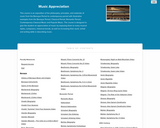
This course is an exposition of the philosophy, principles, and materials of music from the Baroque Period to contemporary period with illustrative examples from the Baroque Period, Classical Period, Romantic Period, Contemporary Classical Music and Popular Music. The course is designed to give the student an appreciation of music by exposing them to many musical styles, composers, historical trends, as well as increasing their aural, verbal and writing skills in describing music.
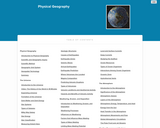
Physical Geography, also called earth science, is the study of our home planet and all of its components: its lands, waters, atmosphere, and interior. In this book, some chapters are devoted to the processes that shape the lands and impact people. Other chapters depict the processes of the atmosphere and its relationship to the planets surface and all our living creatures. For as long as people have been on the planet, humans have had to live within Earths boundaries. Now human life is having a profound effect on the planet. Several chapters are devoted to the effect people have on the planet.The journey to better understanding Earth begins here with an exploration of how scientists learn about the natural world and introduces you to the study of physical geography and earth science.
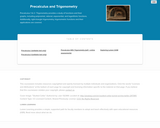
Precalculus 1 & 2 / Trigonometry provides a study of functions and their graphs, including polynomial, rational, exponential, and logarithmic functions. Additionally, right-triangle trigonometry, trigonometric functions and their applications are covered.
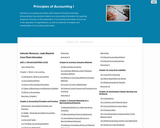
Introduces accounting principles with respect to financial reporting. Demonstrates how decision makers use accounting information for reporting purposes. Focuses on the preparation of accounting information and its use in the operation of organizations, as well as methods of analysis and interpretation of accounting information.
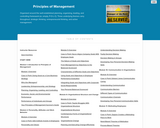
This course is organized around the well-established planning, organizing, leading, and controlling framework (or, simply, P-O-L-C). Three underlying themes carry throughout: strategic thinking, entrepreneurial thinking, and active management.
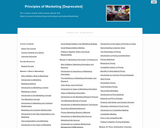
Marketing is a tool used by companies, organizations, and people to shape our perceptions and persuade us to change our behavior. The most effective marketing uses a well-designed strategy and a variety of techniques to alter how people think about and interact with the object in question. Less-effective marketing causes people to turn off, tune out, or not even notice. Why should you care about marketing? Marketing is an ever-present force in modern society, and it can work amazingly well to influence what we do and why we do it.
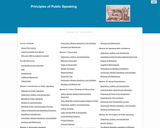
The course is an introduction to the preparation and delivery of oral presentations in an extemporaneous style. Emphasis is on ethical research, critical and logical analysis, and organization of informative and persuasive presentations.